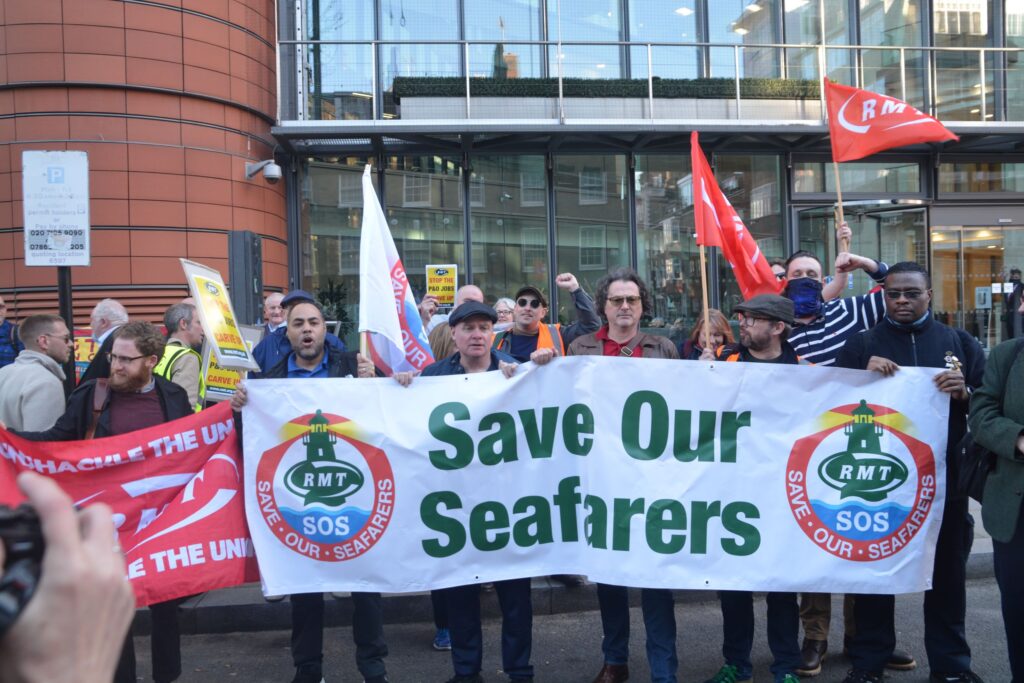Leaders living in a Goldfish Bowl

Ruthless Leaders Vs Empathetic Leaders
One of the things that set us apart from our closest genetic relations (chimpanzees), is our ability to have complex thoughts, to have visionary dreams and plans, and to master languages in order to communicate with others of our species. Of course, chimps can communicate with their fellow primates in their own language, but it’s not the same as when humans communicate an idea or how we express our emotions.
Another difference is perspective-taking…….being able to see another person’s point of view, which we’re perfectly capable of doing, with our highly developed brain; however, having the ability is one thing, being motivated to do so is another…
Some business leaders believe that ruthlessness is what they need to exhibit to get to the top. The people they work with aren’t colleagues, they’re competitors. They‘re comfortable with ‘breaking a few eggs to make an omelette’, so to speak; all they see is their goal ahead of them—nothing else matters. Indeed between 2005 and 2008, Cornell University and Green Peak Partners, carried out a rigorous study, starting from the position that the successful leaders were harsh, and hard-driving, what they found went against the conventional wisdom and found that leaders who passed higher levels of self-awareness, empathy and soft skills performed better at driving hard results.

You don’t have to look far on many of the online forums for tales from employees in despair, because their boss lacks empathy. These leaders micro-manage and stifle those beneath them, and only focus on the bottom line and making money.
If this attitude is universal at the top of the company, there’s no reason to think it would change further down.
We all know of businesses that run in this manner
One that comes to mind is a family firm in a niche industry. The patriarch of the business was employed in his chosen field in the beginning, on the front line; from here, he took the chance to do better by working for himself. He was certainly smart to spot an opportunity in an up-and-coming market and the business grew relatively well at first; however, in the company’s twenty-year history, the owner has not learned one management technique, one collaborative approach, one ounce of knowledge concerning healthy workplace cultures, nor any insights into the financials of the business. The main reason the business expanded is that the owner bought out smaller companies trading in the same field before they turned into rivals—capitalising on their hard work, good people and marketing efforts.
Now, the business has not just plateaued, it’s begun to degenerate—not that the owner can see this. He constantly complains that he can’t attract staff to his front line (it’s a service business), but instead of seeing things from his staff’s point of view, he simply blames his recruitment team, who can only work with what he allows them to offer prospective employees.
He pays minimum wage (as do a lot of companies in various industries. This post isn’t really about that), and he can’t understand why no one wants to work for him. The job these people are required to do is quite dangerous and it involves many unsociable hours. But rather than pay fifty pence more per hour to the lifeblood of the business on which he earns his income (his people), he chooses to spend the money on plush furnishings for the head office or on flash company vehicles and assets that aren’t needed, and which go unused. He regularly puts on expensive soirees to impress clients, who quickly go elsewhere when he can’t fulfil his contract with them (because he can’t get the staff). He treats his frontline workers poorly and thinks he knows better than anyone else.
To be fair to his recruitment team, they do try and explain what would make the difference; he just doesn’t listen to them. And what’s ironic is that he’s then forced to pay out for agency workers, to plug the many holes in his delivery schedule. The agency charges much more than what a pay rise for his employees would cost him.
This business owner is a fish in a fishbowl. His view is the only one that counts, and he can’t see beyond it. His staff are predominantly friends and family members—anyone outside of the ‘clan’ doesn’t stay with the company too long, for obvious reasons.
The company doesn’t need a business guru or genius to eradicate the issues they’re fighting, because much of what is at fault could be righted with a little more understanding, autonomy, collaboration and valuing of the people within the business. The main problem is the leader himself—who won’t take anyone else’s opinion or see another point of view, who expects everyone to conform to his way of doing things, and it is he who is holding the business back.

The happiness and well-being of your people is reflected in your profitability
It’s not ‘woo woo’ to have a collaborative, supportive, respectful working environment that everyone in the company enjoys. You don’t have to be going up for a Nobel Peace Prize or be the world’s best social enterprise to ensure your people are happy, resilient, productive and profitable. The happiness and wellbeing of your people are reflected in your profits. If your front line falls apart, you can’t deliver a good standard of service, and your reputation, as well as your bank balance, will suffer. Your managers should serve the people they lead, as well as focus on moving the business forward in other ways. A culture of ‘us’ and ‘them’ will simply cause the company to splutter to a halt…everyone needs to be pulling in the same direction, with the same goals, with the same high levels of motivation and passion for success.
But this can only happen if you look at the business from the ground up, and if you treat your people like they’re the important ones in the business…as important (if not more so) as management and your board. Research has shown that an investment in your people reaps financial rewards many times more than the original amount spent.
Leadership, of course, has to look towards the people steering the company from the top, as it’s they who guide and develop the leaders themselves. However, these same leaders need to also pivot and look to the people they’re meant to be leading and supporting, too. If they can motivate, innovate, inspire and support their teams to be the best, most effective, most productive versions of themselves, the business will flourish—it can’t fail to.
It’s such a pity this concept sounds like mumbo-jumbo to those living in fishbowls.
‘A closed mind is a dying mind.’ ~ Edna Ferber
Book a free consultation
If you would like to speak with one of our team, book a free consultation
The Jigsaw Discovery Tool and learning experiences answer the “So What?” question that very few management tools are capable of answering. Your understanding evolves, allowing you to develop a better understanding of your team members, building strong, trusting and collaborative relationships between leaders and their teams.
Jigsaw Discovery Experiences asks the best questions. The ones that will solve problems with insight, meaning that leaders know what actions to take and understand what the implications will be as their team start to rebuild, refocus and perform; They also know how they can support individual team members to find fulfilment and be motivated in their role.
Get in touch, if you want to know more about how your leaders can get the best from their teams, as we start to build better workplaces





[…] It’s such a pity this concept sounds like mumbo-jumbo to those living in fishbowls. […]